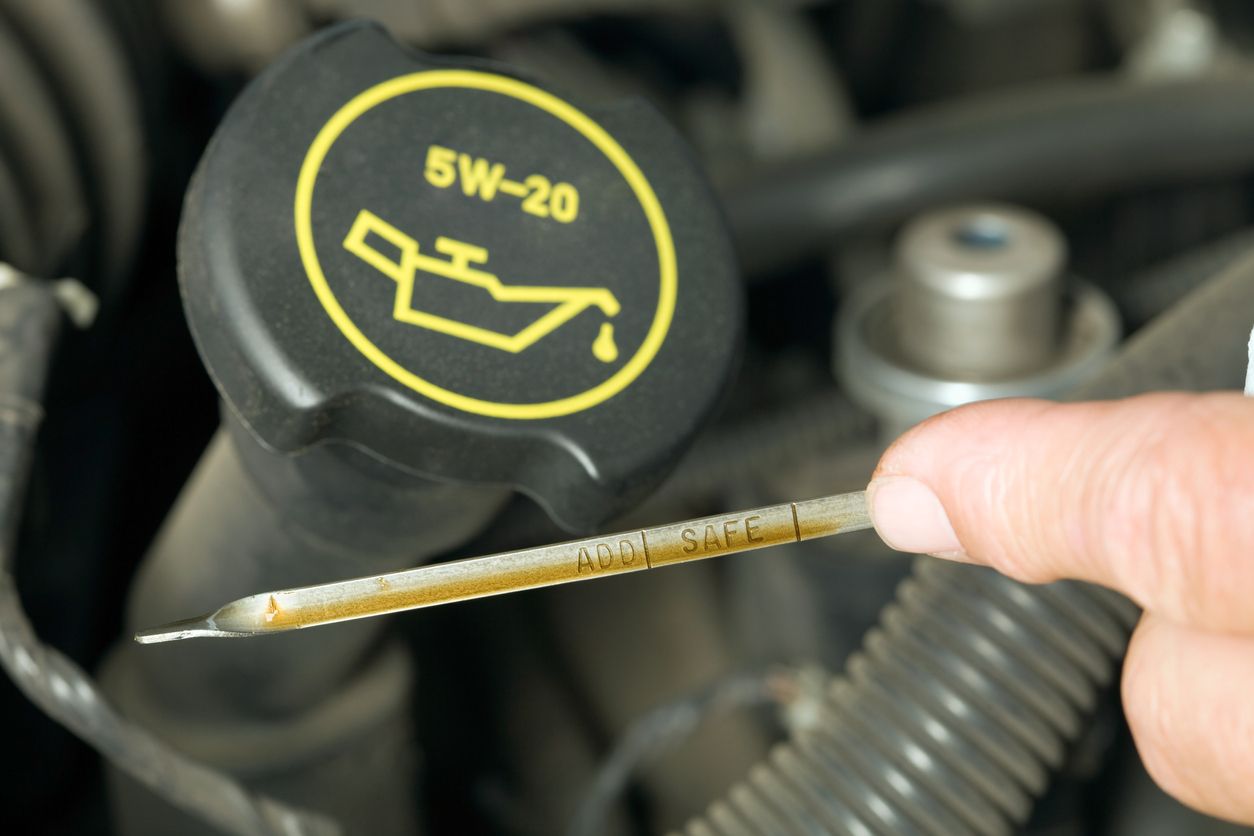Cold weather can wreak havoc on your vehicle in general, but did you know it can also affect your motor oil? Engine oil flows differently in cold temperatures, and that can lead to engine trouble.
With a little know-how and some minor changes, cold weather doesn't have to get the best of you and your vehicle this season. Learn why you might have different oil pressure in cold weather, how winter affects motor oil, and how to stay ahead of potential engine oil problems with this guide.
Cold Weather and Engine Oil: Your Questions, Answered
How does cold weather affect car engines?
In the winter months, your engine may take longer to reach its optimal operating temperature. And when the weather is extremely cold, your motor oil's ability to flow properly may be delayed. When this happens, your engine might not run as efficiently when it's extremely cold out.
Does motor oil freeze?
In extreme cold, yes, motor oil can freeze. If you haven't already, you may want to consider switching to synthetic oil for your next oil change. Synthetic oils often retain their viscosity levels and can better resist freezing, even in extreme cold.
Why is my motor oil low in winter?
Does a car use more oil in cold weather? Not typically. Low oil in cold weather (and otherwise) can depend on the condition and age of your engine and the type of car you drive. If you're constantly topping off your motor oil during the winter, the issue may be something else. Whatever the case, you'll want to have your vehicle inspected ASAP.
Low Oil Pressure: Cold Weather Changes That, Too
Your engine relies on oil pressure to keep oil flowing at a predictable rate. Any number of things can cause low engine oil pressure, like lower oil levels due to oil leaks, a broken oil pump pressure relief valve, and — you guessed it — cold weather (in some conditions).
Since engine oil viscosity changes in cold temperatures, so can your engine's oil pressure. Colder temperatures can actually increase oil pressure, but the churning oil in the engine may create air bubbles. Thicker oil may hold onto those air bubbles longer, making the oil pressure gauge read a lower value. Learn the signs of low oil pressure, and keep a close eye out for them this winter.
Stay Ahead of Engine Problems and Low Oil in Cold Weather
Now that you know how cold weather affects motor oil, what can you do about it? Regular oil changes at your vehicle's scheduled maintenance intervals are a must for your engine's health in wintertime. But here are a few additional guidelines to keep in mind in cold weather:
1. Take longer trips.
Your engine oil feels the effects of winter most when you start your vehicle. And until your engine reaches optimal operating temperatures, engine emissions and contaminants (water and fuel) may accumulate in your engine oil. By taking longer trips (rather than frequent short trips), your engine will have more opportunity to reach its preferred operating temperature.
In short, making sure your engine is operated at optimal temperatures by taking longer drives can help remove these contaminants.
2. Avoid extended idling.
Extended idling can allow more fuel (unburned and partially burned) to contaminate your engine oil. This fuel contamination can then weaken your engine oil's viscosity and reduce its lubricating properties. To help prevent this issue, avoid extended idling where possible and avoid taking frequent short trips to help remove more of those contaminants.
3. Consider switching to synthetic oil.
Because synthetic motor oil is chemically engineered to have a more consistent viscosity (and typically a lower freezing point), synthetic oil is the best oil for most vehicles during cold winter months. Whether you choose a conventional, synthetic blend, or full synthetic oil, be sure you're using oil that's meant for your vehicle.
By the way, the "W" within the oil viscosity rating stands for ‘winter,’ but beyond that, your vehicle manufacturer will specify which viscosity grade is suitable for your particular vehicle.
4. Use the right oil type for your car's mileage.
As your engine ages, it may benefit from the additional conditioning agents found in high-mileage oil to stay lubricated. Not sure if your car is ready for high-mileage oil? Consult the technicians at your local Firestone Complete Auto Care.
5. Have your oil and filter checked.
When your engine starts in cold temperatures, your oil pressure can change quickly and dramatically. This puts added stress on your oil filter. So, be sure to have your oil filter checked regularly and replaced as needed.
6. Check your battery.
Pushing cold oil through your engine demands more energy from your battery during the winter months. Check your battery regularly—especially in extreme temperatures—to ensure it has enough charge to start your car.
Trust Firestone Complete Auto Care for Your Winter Car Oil Change
When temperatures drop, it's time to start your winter car care routine. Let the pros at Firestone Complete Auto Care help with everything from choosing the best engine oil to use in winter to changing a clogged oil filter. Stop by your local Firestone Complete Auto Care today for scheduled maintenance, engine repair, and expert advice!



